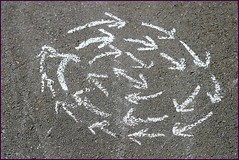The Apostle Paul, one of the more cryptic of early Christians, gave some potent instructions to his fellow Saints regarding helping the poor. Perhaps one of the more interesting passages, indicative of the way to attain true equality, illustrates the balance of gifts given to God’s children:
For I mean not that other men be eased, and ye burdened:
But by an equality, that now at this time your abundance may be a supply for their want, that their abundance also may be a supply for your want: that there may be equality. (2 Corinthians 8:13-14)
This scripture flies in the face of conventional socialist wisdom which states that men should be equal in terms of possessions and opportunity. Indeed, even we Saints have been commanded to be equal in terms of earthly things (though accomplished by a method that starkly contrasts welfare/socialism). In light of such a quest, Paul’s words prove immensely helpful.
For those of us blessed with material prosperity, charity often takes on a single focus. We see poverty, disease, and malnutrition and think that our money will fix the third world’s problems. What we fail to realize is that those who lack worldly wealth are in many ways far more blessed than we are.
My experience in Africa demonstrated this fact to me, teaching me something I had never before considered. The poor and needy with whom I interacted were amazingly humble, faithful, and full of love for God. It was during that experience that I came across the scripture cited above. I was amazed to see this principle demonstrated in real life: essentially, that my material surplus can and should be used to help those in need, but perhaps more importantly, their examples and lives illustrating faith in and love for God can certainly and did indeed help me—an individual always in need of spiritual help.
We miss an important opportunity for reciprocal charity—sharing the gifts and blessings we each have—if we think that the exchange is only a one-sided encounter where we, living high and mighty with our temporal blessings, descend to lift up our poor brothers and sisters in need. My limited experience in philanthrophy and fundraising has indicated to me that some people prefer not to deal with the problems they claim to be solving with their checkbooks. Their money—and sometimes their time—becomes a cop-out for true charity. Only when we allow ourselves to connect (as much as is possible) with the individuals we are helping do we create the opportunity for them to share their talents and blessings with us. Ralph Waldo Emerson once touched on this thought:
Rings and jewels are not gifts but apologies for gifts. The only true gift is a portion of yourself. (Ralph Waldo Emerson, via Quoty)
I believe that true equality is obtained not by managing and distributing temporal goods, but by allowing God’s children to share with each other the varying blessings they each enjoy. Our charity will be far more meaningful when we allow those whom we serve to likewise serve us.
Continue reading at the original source →




